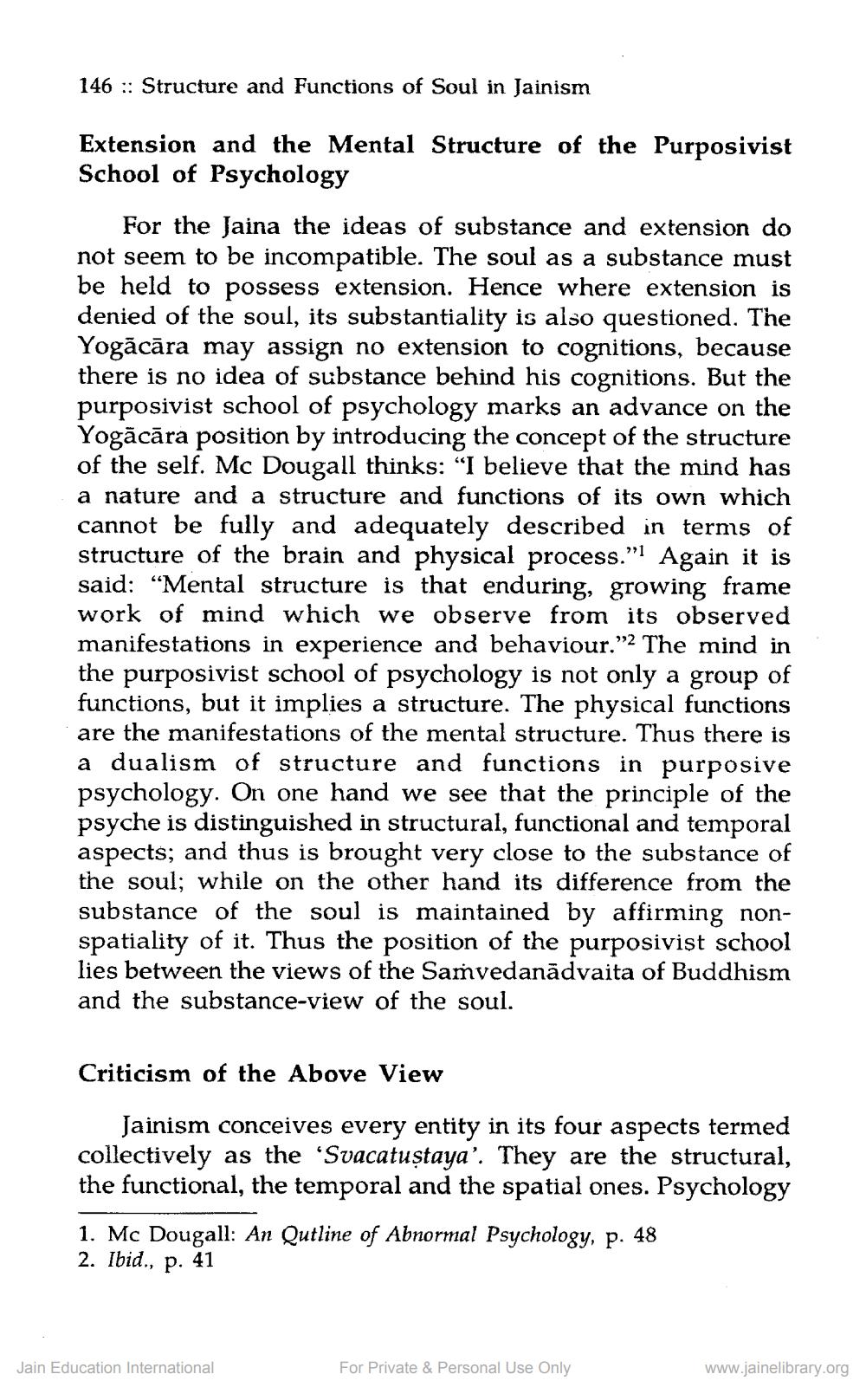________________
146 Structure and Functions of Soul in Jainism
Extension and the Mental Structure of the Purposivist School of Psychology
For the Jaina the ideas of substance and extension do not seem to be incompatible. The soul as a substance must be held to possess extension. Hence where extension is denied of the soul, its substantiality is also questioned. The Yogācāra may assign no extension to cognitions, because there is no idea of substance behind his cognitions. But the purposivist school of psychology marks an advance on the Yogacara position by introducing the concept of the structure of the self. Mc Dougall thinks: "I believe that the mind has a nature and a structure and functions of its own which cannot be fully and adequately described in terms of structure of the brain and physical process." Again it is said: "Mental structure is that enduring, growing frame work of mind which we observe from its observed manifestations in experience and behaviour."2 The mind in the purposivist school of psychology is not only a group of functions, but it implies a structure. The physical functions are the manifestations of the mental structure. Thus there is a dualism of structure and functions in purposive psychology. On one hand we see that the principle of the psyche is distinguished in structural, functional and temporal aspects; and thus is brought very close to the substance of the soul; while on the other hand its difference from the substance of the soul is maintained by affirming nonspatiality of it. Thus the position of the purposivist school lies between the views of the Samvedanādvaita of Buddhism and the substance-view of the soul.
Criticism of the Above View
Jainism conceives every entity in its four aspects termed collectively as the 'Svacatuṣtaya'. They are the structural, the functional, the temporal and the spatial ones. Psychology
1. Mc Dougall: An Qutline of Abnormal Psychology, p. 48 2. Ibid., p. 41
Jain Education International
For Private & Personal Use Only
www.jainelibrary.org




